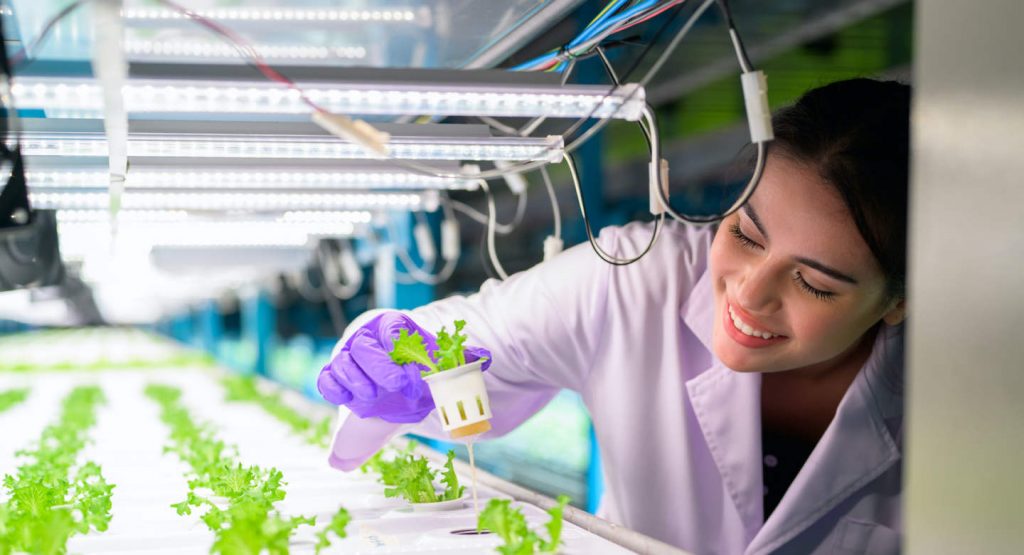Education & Career Trends: September 19, 2024
Curated by the Knowledge Team of ICS Career GPS

Excerpts are taken from an article published on hindustantimes.com
Agriculture has long been the backbone of the Indian economy, shaping its cultural, social, and economic fabric. As the country navigates the challenges posed by technological advances, climate change, and the shift towards sustainable practices, the agricultural sector is witnessing rapid growth and transformation. This evolution opens up diverse career opportunities for those passionate about farming and agricultural sciences.
To excel in this field, it’s important to understand the various career paths available, the educational and training programs required, and the future trends shaping this vital industry.
Educational Pathways in Agriculture: Degrees, Certifications, and Training Programmes
Pursuing a career in agriculture in India generally involves formal education, supplemented by practical training. Whether you’re looking at a foundational role or aiming for advanced research positions, there are numerous degrees and certification options.
Degrees in Agriculture
- Bachelor’s Degrees: Some of the most common undergraduate programmes include B.Sc. in Agriculture, Horticulture, Forestry, and Animal Husbandry. These programmes blend theoretical knowledge with hands-on skills, preparing students for various roles within the sector.
- Master’s Degrees: For those looking to specialise, options like M.Sc. in Agronomy, Agricultural Economics, or Plant Pathology provide advanced skills in research and specific agricultural practices.
- Doctoral Degrees: A Ph.D. in Agricultural Sciences is ideal for those pursuing careers in the agriculture industry’s research, teaching, or scientific fields. This degree enables individuals to contribute to agricultural innovation and policy-making.
Certifications and Training Programmes
- Organic Farming Certification: With the growing demand for organic products, certifications like those from the National Centre of Organic Farming (NCOF) are highly valuable. They certify knowledge in sustainable and organic farming practices, enhancing employability in this niche sector.
- Krishi Vigyan Kendras (KVKs): These agricultural extension centres offer training in modern agricultural techniques. They play a key role in the implementation of green farming initiatives across India.
- National Skill Development Corporation (NSDC): The NSDC offers vocational training in agriculture and allied sectors, ensuring skill development in areas like farm management, dairy production, and agribusiness.
- Online Courses: Platforms such as NPTEL and SWAYAM provide flexible learning options for professionals looking to upskill in areas like crop management, soil science, and agricultural engineering.
The Value of Practical Experience: Internships and Apprenticeships
In the agricultural industry, practical experience is invaluable. Theoretical knowledge alone cannot fully prepare individuals for the day-to-day challenges that arise in farming and agribusiness. Internships, apprenticeships, and fieldwork offer critical exposure to real-world operations and help build a robust skill set.
- Internships: Agricultural universities and companies often offer internships that allow students to gain hands-on experience. Whether on a farm, in a research lab, or with an agribusiness firm, internships provide the opportunity to apply theoretical learning, build networks, and understand the operational aspects of agriculture.
- Apprenticeships: For those seeking in-depth learning in specific areas, such as animal husbandry, crop production, or agricultural machinery, apprenticeships offer guided, practical training under the mentorship of experienced professionals.
- Field Experience: Participating in university-led fieldwork or independent agricultural projects builds essential skills and gives students a deeper understanding of how theoretical practices translate into real-world success.
Trends Shaping the Future of Agriculture in India
- Precision agriculture: Using GPS, drones, and IoT devices to optimise crop yields and resource use. Careers in this area include precision agriculture specialists and data analysts.
- Sustainable agriculture: As the demand for environmentally friendly farming practices grows, so do opportunities in organic farming, agroforestry, and permaculture design.
- Biotechnology: Genetic engineering and biotechnology are opening new avenues in crop improvement and pest resistance. Careers here include biotechnologists and genetic engineers.
- Agribusiness and agri-tech: Combining agriculture with business and technology, roles such as agribusiness managers and agri-tech entrepreneurs are becoming increasingly important.
The Impact of Climate Change on Agriculture and New Career Opportunities:
Climate change is significantly impacting agriculture in India, creating both challenges and opportunities:
- Climate-smart agriculture: Developing and implementing practices that increase resilience to climate change. Roles include climate adaptation specialists and sustainable agriculture consultants.
- Water management: Efficient water use is critical as water scarcity becomes a more pressing issue. Careers in irrigation management and water resource engineering are in demand.
- Renewable energy: Integrating renewable energy sources, such as solar and wind, into agricultural operations. This opens up opportunities for renewable energy technicians and consultants specialising in agricultural applications.
The agricultural sector in India is not just about traditional farming anymore. It offers exciting and diverse career opportunities for those willing to innovate and adapt to new challenges. By combining formal education with practical experience, and staying updated on industry trends, aspiring agricultural professionals can make meaningful contributions to the future of farming in India.
Whether through a bachelor’s degree in agriculture, specialised certification in organic farming, or hands-on apprenticeships, there are numerous pathways to build a rewarding career in this vital and evolving industry.
…
Have you checked out yesterday’s blog yet
B.Tech Graduates with These Skills Are Earning 100% More Than Their Peers: The ‘Big Message’ for Engineers
(Disclaimer: The opinions expressed in the article mentioned above are those of the author(s). They do not purport to reflect the opinions or views of ICS Career GPS or its staff.)
Like this post? For more such helpful articles, click on the button below and subscribe FREE to our blog.





One Reply to “Emerging Career Opportunities in India’s Evolving Agricultural Sector”